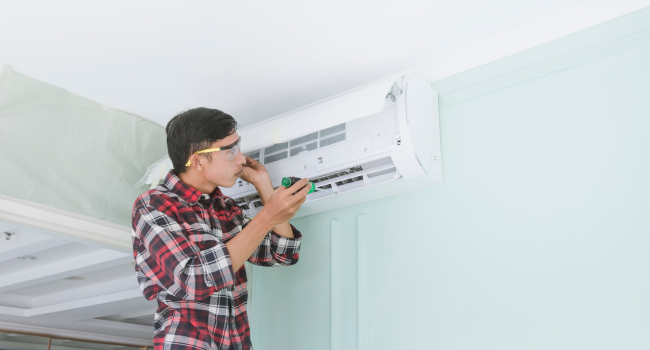The cost of energy is rising, leaving many homeowners looking for ways to keep their consumption, and therefore their costs, low. An efficient air conditioning unit uses less energy than a less efficient one and can considerably reduce energy bills. Improving your unit’s efficiency requires that you know the factors that can affect it so you can rectify them and make the necessary adjustments if needed.
SEER Rating
The SEER (Seasonal Energy Efficiency Ratio) rating tells you an air conditioning unit’s efficiency. It is calculated by dividing the cooling output over a given period by the total energy it has consumed in that period. Today, the minimum recommended SEER rating is 13, but manufacturers produce air conditioning units with a rating as high as 21.
A higher rating means the unit is highly efficient but consumes more energy, although its performance makes sense for the amount of energy consumed. Checking the SEER rating should be an essential consideration for every homeowner looking for a new AC unit or who wants a replacement.
Maintenance
Your air conditioning unit requires regular maintenance to run as efficiently as possible. Air conditioning maintenance helps you and a professional find minor issues and rectify them before they become significant problems. The effects of minor issues are cumulative, which is another reason you should hire an air conditioning maintenance expert to check the unit at least once a year if you own a standalone unit.
If you have an HVAC system, plan for two check-ups every year as these units both heat and cool and so they do more work than standalone systems.
During the check-up, the professionals will:
- Check the AC fins
- Look for leaks and puddles
- Check the electrical system
- Clean the unit
- Check your air filters
Poor Airflow
The air handler in your AC unit will work much harder if it doesn’t get enough airflow. When this happens, the unit will consume more power, leading to a less efficient system and higher energy bills. Some issues that can cause poor airflow include issues with the ductwork, a blocked condenser unit, and clogged air filters.
You can change the air filter on your AC unit on your own, but call an expert to check for issues you will not be able to handle yourself.
Ductwork Leaks
Many air conditioning systems use ductwork to distribute air inside a home or property. If the ductwork does not do this properly, you will notice a decrease in the efficiency of your system. Some of the issues that cause this are cracks, openings, and disconnections.
Besides reducing the system’s efficiency, these issues can allow debris, dirt, and dust to enter the home, reducing air quality. An AC expert can fix these issues promptly to ensure the system continues functioning as efficiently as it should.
An efficient AC unit provides superior performance while also helping you keep your energy costs down. It is essential to pay attention to it, check it often, and call a professional for an annual or semi-annual check-up to ensure the system performs as expected.
Read more on Pressmagazines
